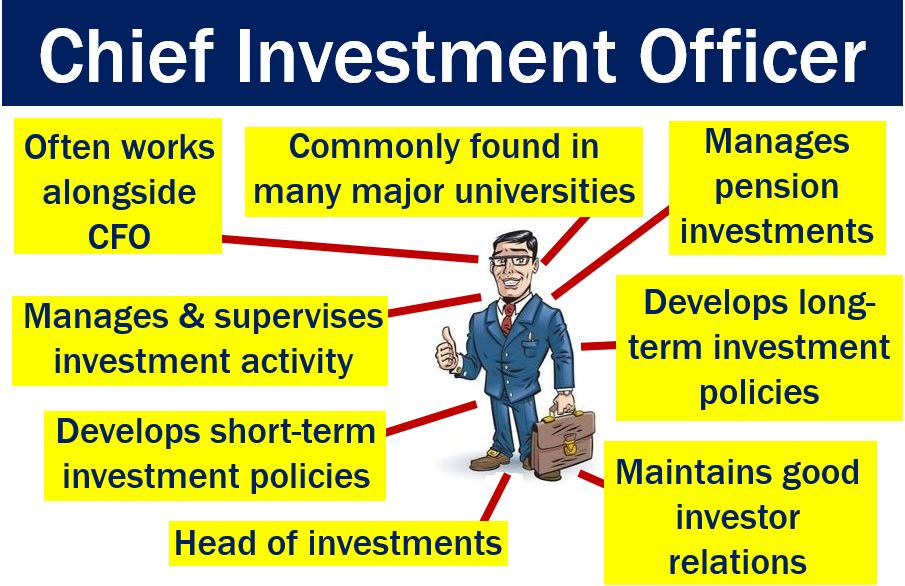A Chief Investment Officer (often shortened to CIO) is a top-level executive responsible for overseeing an organization’s investment strategy and portfolio. This role typically appears in large businesses and institutions such as banks, insurance companies, pension funds, or nonprofit organizations with endowments. The CIO’s primary goal is to make sure that the money being invested meets the organization’s long-term objectives, whether that’s maximizing returns, supporting day-to-day business needs, or funding future projects.
The initials CIO may also mean chief information officer.
Investment refers to the use of resources to make more money. We also use investments to bring income and other future benefits.
The chief investment officer is responsible for managing and supervising investment activity, placing investment orders, and managing pension investments. The CIO also maintains good investor relations and works with external analysts. The CIO’s team develops short- and long-term investment policies.

The CIO also reports portfolio performance to directors and other executives.
The chief investment officer typically works with the chief financial officer (CFO). The CFO is the most senior financial executive in most companies. Many report directly to the chief executive officer (CEO). They may also report to the chief operating officer (COO). They provide regular updates on the status of the corporation’s investment activities.
Good CIOs have two main functions. First, they must achieve a return; second, they have to manage risk levels. In fact, focusing on both roles often creates conflicts.
Chief investment officer at universities
CIOs are often part of the leadership of colleges and universities, especially those that make investments. College investments bring in income to maintain scholarships, campuses, and other important functions.
Chief investment officers advise the university’s board members. They also advise other officers regarding the current status of the institution’s investment portfolio. Additionally, CIOs make recommendations on any changes to the portfolio that they think the college should make.
The Chief Investment Officer typically has the following duties and responsibilities at a university:
- Establishing and maintaining a financial and operational processing environment. This environment should focus on ethical standards and appropriate internal controls.
- Advising the President, Development and Investments Committee, and Senior Vice President for Business and Finance. They advise these people on the university’s investment portfolio and its performance.
- Maintaining an investment manager search process to make sure best use is being made of staff. They should also make sure that staff selection is good.
- Establishing relationships within the global investment community. Above all, the CIO must ensure that the institution has access to top research and managers.
